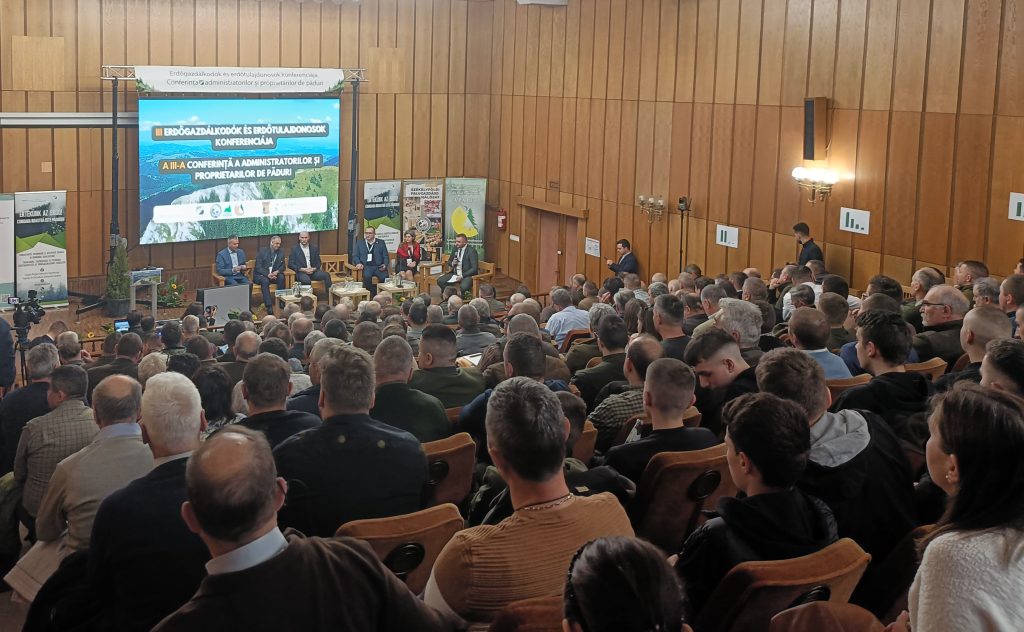The allocation of dedicated funds for forest conservation in the next European Financial Framework, which the European Commission will present by July 1, and the challenges that forests and forest managers face due to climate change were the main topics of interest for WWF-Romania during the debates on the future of the forestry sector, held in Miercurea-Ciuc.
The discussions on „Sustainable Forest Management, Climate Change, and New Legislation” brought together forest managers and owners, representatives of the forestry industry, academia, the Ministry of the Environment, and civil society.
Many forest owners and managers whose lands are located in Natura 2000 sites or other types of protected areas are dissatisfied with the restrictions imposed and the additional financial efforts they must make as a result. As the European Commission is currently discussing financial allocations for specific objectives it considers important, WWF-Romania aims to engage in a process that ensures dedicated funds for the environment and forests in EU member states.
“Until now, these funds have been integrated into the Common Agricultural Policy and managed by the Ministry of Agriculture. As a result, member states receive funding for forests based on criteria related to their agricultural situation, which is absurd. Furthermore, these funds are managed by the Ministry of Agriculture and Rural Development, which has no obligations in the field of forest management and protected areas. Because of this, financing for the environment and forests is insufficient and, at times, ineffective. Only through dedicated funding, based on criteria related to the environment and forests, can the established social and environmental objectives be achieved. Thus, the concerns of forest owners could be addressed through these dedicated European funds.”
Radu Melu, Forest Projects Coordinator at WWF-Romania
Climate change and extreme weather events are another major concern for the entire forestry sector. This is why WWF is implementing a regional project to identify the best forest management solutions that will enhance the resilience and resistance of forests to climate change and, consequently, to extreme weather events. These solutions will be agreed upon in collaboration with specialists from countries such as Bulgaria, Hungary, Slovakia, and the Czech Republic.
This is why the coming months are crucial for Member States, especially those in Central and Eastern Europe—the green heart of Europe—to cooperate and collectively support the best solutions for forests. Effective and inclusive conservation is only possible if the future European Union budget for the 2027–2034 period directly takes forests into account.

